#Soviet occupied Poland
Photo
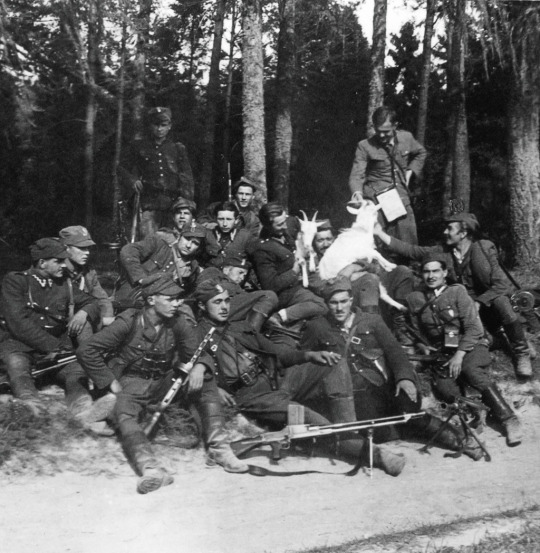
Grupa żołnierzy ze zgrupowania partyzanckiego AK-DSZ-WiN mjr. Hieronima Dekutowskiego w okolicach Łańcuta (1946).
#Polska#Łańcut#1946#lata 40#AK#WiN#DSZ#Poland#1940s#Soviet occupied Poland#cursed soldiers#anti-communism#old photo
29 notes
·
View notes
Text
how the heck did my music taste go from Cool Men Norwegian Heavy Metal to Soviet Village Grandma Accordion Chansons 🐜 within three weeks :0
#random mind#Not Russian music -> I mean SOVIET OCCUPIED countries (Baltics. Poland etc)#I'm forever your local hater of communism#meanwhile#I do have other personalities on board!!#Lapland Indie Fitness Mom Pop#Lofoten Island Rockabilly Jukebox Uncle#Faroese Bossa Nova made by Vikings#and another personality is called-#Tiny Finnish Drunkard living inside a Molotow Cocktail Bottle waiting to be released in the FLAMES#they're all inside me#why is 2024 so strange#split personality
4 notes
·
View notes
Note
Do you have any good reads on the Molotov–Ribbentrop Pact? I don’t trust wikipedia on this because all sources are from anglo-american sources and one is from radio free europe lol
I'm bad at giving reading references, but in brief: the USSR first approached each of the western powers and attempted to form an anti-Nazi alliance, but none of them aggreed, because they wanted the Nazis to weaken or outright destroy the USSR, and kill two birds with one stone (hence the 'appeasement' period); all the other powers had their own treaties with Germany that were generally equivalent wrt non-aggression; and the USSR eventually formed its own non-aggression treaty with Germany *because* they and everyone else knew Germany was planning to invade and genocide the USSR, so they needed as much time as possible to prepare their defences (for their piece, the Nazis would expect increased war preparations on the part of the USSR to actually *benefit* their invasion, as they hoped that the USSR would dedicate all its forces to its western border, and have them decisively encircled and destroyed all at once with the initial, speedy push - the USSR showed great restraint and forced Germany instead to commit to a lengthy, protracted invasion to fight the bulk of the Soviet army in its own depth). The Soviet occupation of Poland, while having its obvious negative aspects, also prevented further Nazi advance, and prevented the Nazi occupation of half of Poland, during which time Polish jews were able to be evacuated - and lest we forget that Poland itself was an extremely reactionary, antisemitic state at the time already. The USSR only occupied Polish territory once it became clear that the Nazis would not stop at the part of Poland designated to be in 'their sphere', and would continue to occupy the part that was technically protected in the treaty by being designated as part of the 'Soviet sphere'. The idea of a 'Nazi-Soviet alliance' that carved up Poland is a key piece of ideological justification for the equivocation of fascism and communism, and, along with the 'double genocide' myth, was perpetrated directly by the Nazis themselves.
504 notes
·
View notes
Text

On this day in 1945, the Soviet Red Army liberated Auschwitz concentration camp in occupied Poland, revealing to the world the horrors of Nazi occupation.
178 notes
·
View notes
Text
"za wolność naszą i waszą" is a polish motto, "for your freedom and ours," created by the polish underground in the 1830s and gaining widespread popularity in the polish uprising of 1831, when poland was occupied by the russian empire, in response to the russian constitutionalist decembrist uprising of 1825. they understood that if the decembrists had succeeded in bringing about a free russia, poland would have been freed, too. in the 20th century, it was used by jewish fighters in the warsaw ghetto, and gained massive popularity due to its use by soviet, and then eastern bloc dissidents. it continues to be used as a slogan of the russian opposition
143 notes
·
View notes
Text
My next post in support of Ukraine is:
Next site, the city of Kamianets-Podilskyi (Кам'янець-Подільський) in Khmelnytskyi Oblast. Its name is derived from an Old Slavic word, kamin, which means 'stone' and from the historic region known as Podilia. The literal meaning of the name is 'The Stones of Podilia.' It's believed by some historians that there was an earlier city built on the same spot by the Dacians, an ancient people from what is now Romania, Moldova, and parts of Ukraine. The earliest mention of the current city is from 1062. In 1241, it was destroyed by the Mongols. In 1352, it came under Polish rule. The castle in the city (which I posted about earlier in the🧵) was expanded by the Polish kings to guard against the Ottoman & Tatar invasions. Though, in 1672, the city did become part of the Ottoman Empire for a short while. It was returned to Polish rule in 1699. In 1793, after the Second Partition of Poland, the city became part of the "russian" empire. During WWI, it was occupied by Austria-Hungary in 1915. When the "russian" empire collapsed in 1917, it came under the control of the Ukrainian People's Republic and was chosen as its capital when Kyiv was captured by the Bolsheviks. In 1921, it came under the control of the soviet union until 1991, when Ukraine declared its independence.
#StandWithUkraine
#СлаваУкраїні 🇺🇦🌻
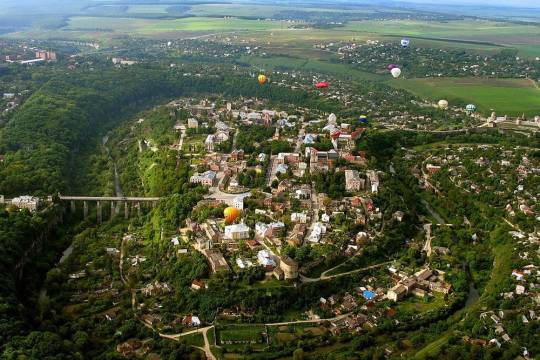
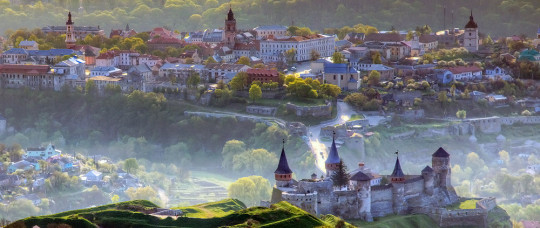
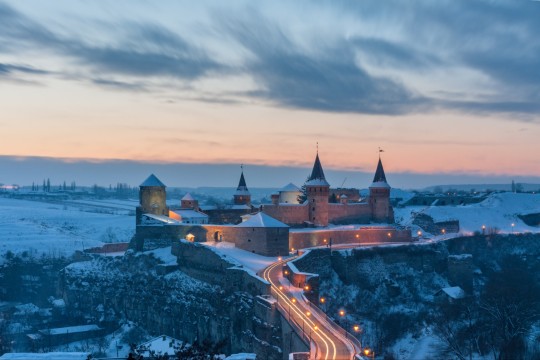
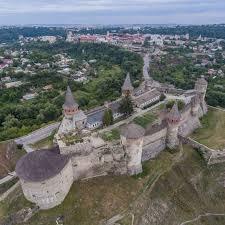
78 notes
·
View notes
Text
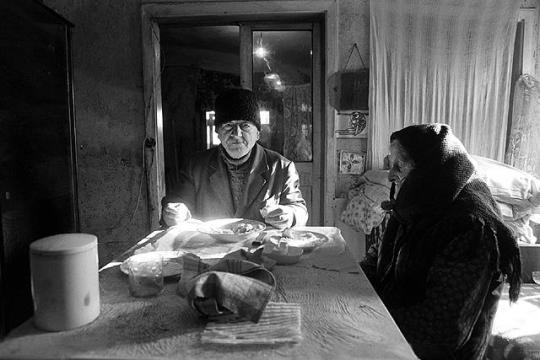
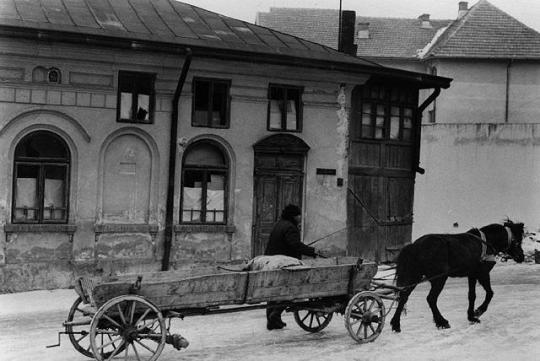


Jewish life in Dorohoi, Romania, 1980s
Located on important trade routes between Poland, Bukovina, and Moldavia, Dorohoi attracted Jews as early as the 15th century. In the 18th and 19th century, Jewish numbers sharply increased, reaching more than half of the population. They were shopkeepers, tailors and sold oils, spirits, grains and cattle. On 1 July 1940, after Bessarabia and Bukovina were occupied by the Soviets, a unit of the Romanian army arrived in Dorohoi and perpetrated a brutal pogrom. It was followed by the deportation of thousands of Jews to Transnistria, with many of them dying on the way. Thanks to the intervention of Jewish leaders in Bucharest and as a result of the changing fortunes of war, the deportees still alive were allowed to return in December 1943, and, despite all the obstacles, the community quickly restablished itself.
220 notes
·
View notes
Text
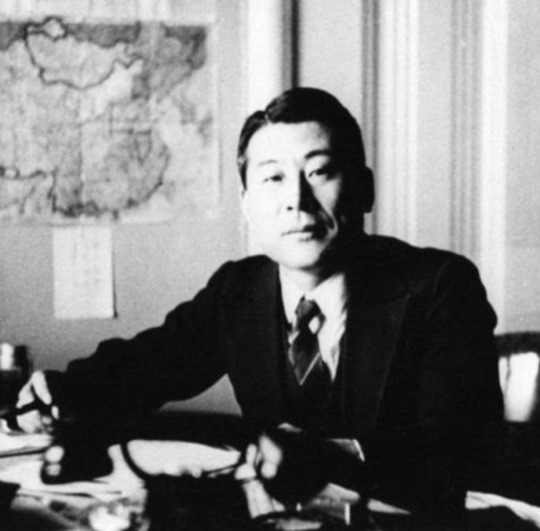
Chiune Sugihara was a Japanese diplomat in Lithuania who put his family and career at risk by issuing thousands of hand-written transit visas to Jewish refugees fleeing Eastern Europe.
Chiune was born to a middle class family in Mino, Japan on the first day of the 20th century – 1/1/00. In elementary and high school he was a top student, and his father wanted him to become a doctor. Chiune’s own dream was to enter the foreign service, and he deliberately failed the medical school entrance exam by writing only his name on the test. Instead Chiune attended Waseda University and majored in English. He also joined a Christian fraternity to practice his English.
In 1919, Chiune passed the Foreign Ministry Scholarship exam, and served in the Japanese Imperial Army as a 2nd Lieutenant stationed in Korea. He resigned his commission in 1922 and trained for the Foreign Ministry, learning Russian and German in addition to English. He aced the qualifying exam and was sent to work in the foreign office in Harbin, China.
Chiune’s strong moral compass led him to resign his post as Deputy Foreign Minister in Manchuria because of rising Japanese violence against the Chinese (just two years later was the horrific Rape of Nanking by the Japanese Imperial Army.) Chiune returned to Japan, where he married Yukiko Kikuchi. They later had four sons.
Next Chiune went to Helsinki, Finland, where he worked as a translator for the Japanese delegation. In 1939, Chiune became vice-consul of the Japanese embassy in Kauna, Lithuania. Part of his job was to find out if Germany planned to attack the Soviet Union, and to relay any information about this to his bosses in Berlin and Tokyo.
In 1940, the Soviet Union occupied Lithuania. At that time, approximately 1/3 of Lithuanians were Jewish, many of them Torah scholars. The USSR viciously persecuted Jews, especially religious ones, and the Jews of Lithuania were desperate to escape the country – especially because Nazi Germany was occupying more and more of Eastern Europe and would soon be in Lithuania. Hundreds of them, mostly Orthodox, visited the Japanese consulate to beg for exit visas to Japan. The official Japanese policy was that candidates for visas must go through elaborate bureaucratic procedures and pay significant sums of money. Chiune contacted his superiors at the Japanese Foreign minister to ask if the rules could be relaxed to help Jewish refugees. His request was denied, as were his next two requests.
Chiune could have thrown up his hands and told the Jews there was nothing he could do for them, but instead, as he did in China, he was governed by his strong sense of right and wrong, rather than soulless bureaucrats. He ignored his orders and started issuing ten-day visas for Jews to travel through Japan on their way to safe havens like Shanghai, China, where 20,000 Jews rode out the war safely.
As word got out about the Japanese visas, Jews from all over Lithuania as well as Poland began to swarm Chiune’s office. He simply wouldn’t say no to anybody, and spent 18-20 hours a day (!) painstakingly writing visas by hand. He created a month’s supply of visas every single day from August to early September 1940, providing an escape route for thousands of Jews. On September 4, the Japanese consulate in Kauna was closed and Chiune had to leave the country. He was determined to create as many transit visas as possible, and continued doing so up until the last minute. At Kanuas Railway Station, a crowd of Jews gathered to say goodbye. Right before boarding the train, Chiune bowed deeply and cried out, “Please forgive me! I cannot write anymore. I wish you the best!” Someone in the crowd shouted, “Sugihara! We’ll never forget you! I’ll surely see you again!”
Chiune was reassigned to East Prussia, then Prague, and then Bucharest, Romania. When the Soviet Union occupied Lithuania in 1944, Chiune and his family were imprisoned in a POW camp for a year and a half. Finally they were released in 1946 and returned to Japan, but the foreign office had heard about his unauthorized visas, and he was forced to resign. At about this time, the Sugihara’s youngest son died of leukemia at age seven.
Unemployable in Japan, Chiune made use of his excellent Russian language skills and spent the next 16 years working in the Soviet Union while his wife and sons stayed in Japan. Chiune’s exceptional heroism was unknown for many years, until 1968, when he was contacted by Yehoshua Nishri, an attache working at the Israeli consulate in Tokyo. Nishri spent his youth in Poland, and heard stories of the legendary Japanese hero. Nishri made it his mission to publicize Chiune’s heroic acts, and the next year, 1969, Chiune traveled to Israel as an honored guest of the Israeli government. Jews he’d saved lobbied for him to be recognized as Righteous Among the Nations by Israeli Holocaust Memorial Yad Vashem, and in 1984 he received the honor. At that time he was too sick to travel, so his wife and son Nobuki accepted the award on his behalf.
Chiune was asked why he risked everything to help thousands of strangers. He answered, “You want to know about my motivation, don’t you? Well. It is the kind of sentiments anyone would have when he actually sees refugees face to face, begging with tears in their eyes. He just cannot help but sympathize with them. Among the refugees were the elderly and women. They were so desperate that they went so far as to kiss my shoes. Yes, I actually witnessed such scenes with my own eyes. Also, I felt at that time, that the Japanese government did not have any uniform opinion in Tokyo. Some Japanese military leaders were just scared because of the pressure from the Nazis; while other officials in the Home Ministry were simply ambivalent. People in Tokyo were not united. I felt it silly to deal with them. So, I made up my mind not to wait for their reply. I knew that somebody would surely complain about me in the future. But, I myself thought this would be the right thing to do. There is nothing wrong in saving many people’s lives… The spirit of humanity, philanthropy… neighborly friendship… with this spirit, I ventured to do what I did, confronting this most difficult situation – and because of this reason, I went ahead with redoubled courage.”
Chiune Sugihara died in Japan on July 31, 1986. Despite being a hero in Israel, and among Jews worldwide, he was completely unknown in his own country. Even his own children didn’t know what he had done. A huge delegation from around the world attended Chiune’s funeral, and only then did he become known in Japan.
Chiune received many awards and accolades, most of them posthumous. Among them are Sugihara Streets in Vilna, Lithuania, and Jaffa and Netanya in Israel. There is a Sugihara House Museum in Kaunas, and a park in Vilna where 200 trees were planted on his 100th birthday. There is a life-sized statue of him in Little Tokyo in Los Angeles, featuring a plaque with a quotation from the Talmud, “He who saves one life, saves an entire world.” In 1998, Chiune’s widow Yukiko traveled to Israel and was warmly received by survivors who’d been saved by her husband. There is a Sugihara park in Jerusalem, and he was featured on an Israeli postage stamp in 1998. The Lithuanian government declared 2020 “The Year of Chiune Sugihara.” He has been the subject of multiple works of art, including books, films and a play.
It’s estimated that over 100,000 people are alive today because of the brave actions of Chiune Sugihara.
108 notes
·
View notes
Text
Imagine that someone—perhaps a man from Florida, or maybe even a governor of Florida—criticized American support for Ukraine. Imagine that this person dismissed the war between Russia and Ukraine as a purely local matter, of no broader significance. Imagine that this person even told a far-right television personality that “while the U.S. has many vital national interests ... becoming further entangled in a territorial dispute between Ukraine and Russia is not one of them.” How would a Ukrainian respond? More to the point, how would the leader of Ukraine respond?
As it happens, an opportunity to ask that hypothetical question recently availed itself. The chair of the board of directors of The Atlantic, Laurene Powell Jobs; The Atlantic’s editor in chief, Jeffrey Goldberg; and I interviewed President Volodymyr Zelensky several days ago in the presidential palace in Kyiv. In the course of an hour-long conversation, Goldberg asked Zelensky what he would say to someone, perhaps a governor of Florida, who wonders why Americans should help Ukraine.
Zelensky, answering in English, told us that he would respond pragmatically. He didn’t want to appeal to the hearts of Americans, in other words, but to their heads. Were Americans to cut off Ukraine from ammunition and weapons, after all, there would be clear consequences in the real world, first for Ukraine’s neighbors but then for others:
If we will not have enough weapons, that means we will be weak. If we will be weak, they will occupy us. If they occupy us, they will be on the borders of Moldova and they will occupy Moldova. When they have occupied Moldova, they will [travel through] Belarus and they will occupy Latvia, Lithuania, and Estonia. That’s three Baltic countries which are members of NATO. They will occupy them. Of course, [the Balts] are brave people, and they will fight. But they are small. And they don’t have nuclear weapons. So they will be attacked by Russians because that is the policy of Russia, to take back all the countries which have been previously part of the Soviet Union.
And after that, if there were still no further response? Then, he explained, the struggle would continue:
When they will occupy NATO countries, and also be on the borders of Poland and maybe fight with Poland, the question is: Will you send all your soldiers with weapons, all your pilots, all your ships? Will you send tanks and armored vehicles with your young people? Will you do it? Because if you will not do it, you will have no NATO.
At that point, he said, Americans will face a different choice: not politicians deciding whether “to give weapons or not to give weapons” to Ukrainians, but instead, “fathers and mothers” deciding whether to send their children to fight to keep a large part of the planet, filled with America’s allies and most important trading partners, from Russian occupation.
But there would be other consequences too. One of the most horrifying weapons that Russia has used against Ukraine is the Iranian-manufactured Shahed drone, which has no purpose other than to kill civilians. After these drones are used to subdue Ukraine, Zelensky asked, how long would it be before they are used against Israel? If Russia can attack a smaller neighbor with impunity, regimes such as Iran’s are sure to take note. So then the question arises again: “When they will try to occupy Israel, will the United States help Israel? That is the question. Very pragmatic.”
Finally, Zelensky posed a third question. During the war, Ukraine has been attacked by rockets, cruise missiles, ballistic missiles—“not hundreds, but thousands”:
So what will you do when Russia will use rockets to attack your allies, to [attack] civilian people? And what will you do when Russia, after that, if they do not see [opposition] from big countries like the United States? What will you do if they will use rockets on your territory?
And this was his answer: Help us fight them here, help us defeat them here, and you won’t have to fight them anywhere else. Help us preserve some kind of open, normal society, using our soldiers and not your soldiers. That will help you preserve your open, normal society, and that of others too. Help Ukraine fight Russia now so that no one else has to fight Russia later, and so that harder and more painful choices don’t have to be made down the line.
“It’s about nature. It’s about life,” he said. “That’s it.”
#current events#warfare#politics#russian politics#american politics#russo-ukrainian war#2022 russian invasion of ukraine#russia#ukraine#usa#volodymyr zelenskyy#ron desantis#nato
245 notes
·
View notes
Text

5 Wileńska Brygada Armii Krajowej (1945).
8 notes
·
View notes
Text
Banned Books Week 2023
It’s that time of year again, when we honor and focus on the books out there that have been banned. And boy, it seems the last few years that book banning has been on the rise. You know if you don’t like a book and you don’t agree with it, no one is forcing you to read it. I’ll even go as far as understanding parents taking books out of their own kid’s hands. My objection is when parents take books out of some other kid’s or adult’s hand. Growing up, if someone had taken “The Diary of Anne Frank” off of my library’s shelf, I would have been lost.
This year I’m focusing on… “Anne of Green Gables,” by Lucy Maud Montgomery. Yes, you read that right, our dear old unromantic Anne Shirley was banned!

Description:
Eleven-year-old Anne Shirley has never known a real home. Since her parents’ deaths, she’s bounced around to foster homes and orphanages. When she is sent by mistake to live with Matthew and Marilla Cuthbert at the snug white farmhouse called Green Gables, she wants to stay forever. But Anne is not the sturdy boy Matthew and Marilla were expecting.
She’s a mischievous, talkative redheaded girl with a fierce temper, who tumbles into one scrape after another. Anne is not like anybody else, the Cuthberts agree; she is special, a girl with an enormous imagination. All she’s ever wanted is to belong somewhere. And the longer she stays at Green Gables, the harder it is for anyone to imagine life without her.

Author:
Lucy Maud Montgomery was born in Clifton, Prince Edward Island, in 1874. Educated at Prince Edward College, Charlottetown, and Dalhousie University, she embarked on a career in teaching. From 1898 until 1911 she took care of her maternal grandmother in Cavendish, Prince Edward Island, and during this time wrote many poems and stories for Canadian and American magazines. Montgomery’s first novel, Anne of Green Gables, met with immediate critical and popular acclaim, and its success, both national and international, led to seven sequels. Maud Montgomery also wrote the popular Emily of New Moon in 1923 followed by two sequels, and Pat of Silver Bush in 1933 with its sequel. L. M. Montgomery died in Toronto in 1942, but it is her early years of lush, green Prince Edward Island that live on in the delightful adventures of the impetuous redhead, the stories Mark Twain called “the sweetest creation of child life yet written.”

Why It was Banned:
You’re probably asking yourself, who on earth would ban something as adorable, and funny, and innocent as “Anne of Green Gables?” (Who on earth bans any book?) Well, let’s find out!
After “Anne of Green Gables,” was published in 1908, it wasn’t long before it was translated into other languages, that way others could fall in love with Anne Shirley. In 1912, it was translated to Polish and it found a captive audience amongst the Polish people. Soon, Lucy Maud Montgomery’s other works were translated, and she grew very popular there. Anne’s individuality was endearing. In 1939, when the Nazis invaded Poland, Polish soldiers were issued copies of Montgomery’s novels to take to the frontlines, as a means to raise the moral. When the Nazis occupied the country, “Anne of Green Gables” and Montgomery’s other works were banned, but that didn’t stop the Polish people. Copies were sold on the black market; resistance members carried them. Anne Shirley had become a beacon of hope. The war in Poland ended in 1945 and I’m sure the Polish people were looking forward to being free…unfortunately, they had been liberated by the Soviets and a Communistic government was put into place. Similarly, because Montgomery’s works were so beloved and “Anne’s resistance to authority” was a threat, the Soviets viewed it as “subversive” and banned “Anne of Green Gables” in 1953 to 1956.

My Thoughts:
I first read “Anne of Green Gables” when I was thirteen or fourteen. My family and I were visiting family up north and we stopped by this huge warehouse that sold old, used books for cheap. I stumbled across “Anne of Green Gables” and from the title I was intrigued, and it was one of the ones we bought. I devoured it and soon fell in love with odd, weird, red-haired girl. She turns her hair green, hits a boy with a slate, gets her friend drunk – what’s not to like? I had no idea it was Classic Lit – to me Anne Shirley felt modern and realistic. I went on to read the rest of the series, and re-read them off and on over the years. Then, I found the miniseries! Imagine my surprise when I learned it was a banned book.
So, you see, the Nazis and the Communists banned and censored books…Those who are on the side of good don’t ban and censor books. And I’ll leave it at that.
#banned books week#banned books#banned books week 2023#anne of green gables#l. m. montgomery#lucy maud montgomery#anne shirley#classic literature#poland#communists#nazis#wwii
106 notes
·
View notes
Photo
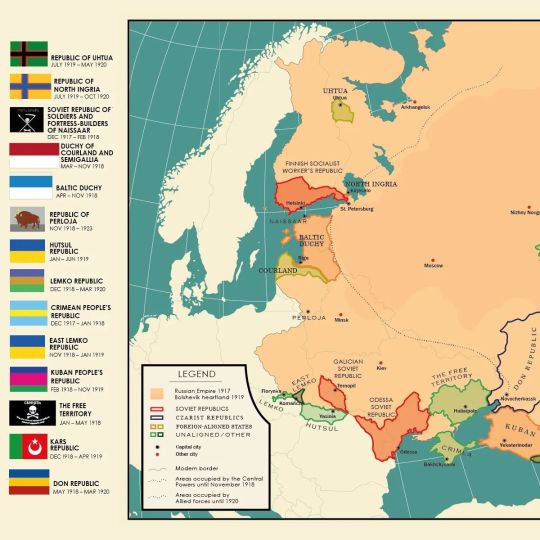
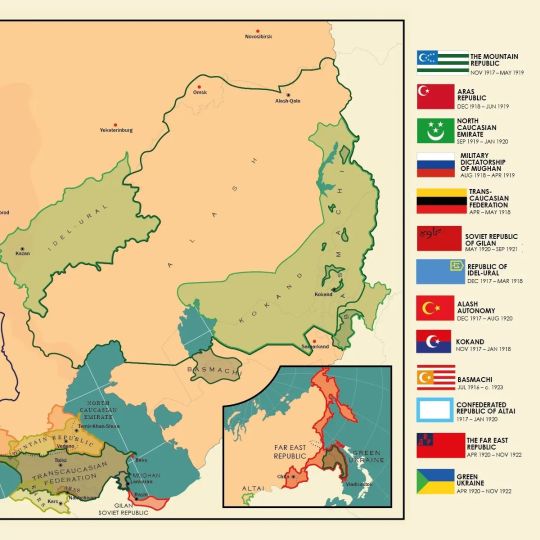
Temporary states during the Russian Civil War (1917–1922)
Anders Kvernberg (Oslo, 2018)
via cartesdhistoire
The Russian civil war (Oct. 1917-summer 1922) pitted Reds (communists), Whites (tsarists led by Wrangel, Kolchak, Denikin, Yudenitch) & Greens (armies of peasants facing Whites & Reds) against each other. In this chaos, many states have a brief independent life.
The largest is the Far Eastern Republic, a Bolshevik puppet state (from which Green Ukraine seceded). The smallest are the Republic of Perloja, limited to a Lithuanian village, presided over by a veteran of the Tsarist army, & the Soviet Republic of Naissaar, proclaimed in a fort on an Estonian island in December. 1917 by 82 Bolshevik sailors (hunted by the Germans on February 24, 1918).
The German occupiers signed a first treaty in Brest-Litovsk on February 9. 1918 with Ukraine then a second on March 3 with the Bolsheviks. Germany seizes Poland, Lithuania & Courland while Finland, Estonia, Latvia & Ukraine become independent under German control.
The Ukrainian People's Republic (non-Bolshevik), autonomous since the spring of 1917, was overthrown by the coup d'état of the conservative general Skoropadsky. With German support, he established the Hetmanate (April–Dec. 1918) and was then ousted from power during an uprising led by Simon Petliura & his (non-Bolshevik) Ukrainian People's Army. The Ukrainian republic was restored until 1921, not without first having to fight the libertarian Ukraine (or Makhnovshchina), a revolutionary peasant movement led by Nestor Makhno, who capitulated to the Bolsheviks in August 1921. Other states on Ukrainian territory are the Bolshevik Republic of Odessa, the Lemko Republic, the Komańcza Republic (or Eastern Lemko Republic) & the Hutsul Republic. At the same time, in the east of Ukraine, the anti-Bolshevik Don Cossack Republic was formed.
No state survived the creation of the USSR on December 30. 1922.
89 notes
·
View notes
Text
Today it’s the 24th of February, 2 years after the full-scale war started in Ukraine. Most know that this isn’t completely out of the blue, since Crimea was invaded 10 years ago, but let’s go back even further.
During the first world war, Ukraine was torn to pieces, literally, it was occupied by Poland, Russia, France, anarchists, and the Whites, Kyiv changed hands over five times in a year, communication inside and outside the country was almost completely cut off.
This war eventually resulted in the Soviet Union occupying Ukraine. Due to this Ukrainian people fought in the Soviet army. At the end of the war Ukraine did gain some independence, for some decisions, such as being accepted into NATO as Ukraine, rather than as the Soviet Union.
On the 21st of January 300 000 Ukrainians lined themselves up between Kyiv and Lviv, forming a human chain for independence and on the 24th of August Ukraine declared itself independent from the Soviet Union.
In 2004 there were presidential elections between Yushchenko and Yanukovich, in which Yanukovich won, however the results were falsified, and the Ukrainians protested for 2 months, this is known as the Orange revolution. The protestors won, and the elections were re-done, where Yushchenko won fair and square.
6 years later there are new elections, in which Yanukovich wins, again, fairly. He promised that he’d integrate Ukraine with Europe and join the EU. However, in 2013 when he was about to sign the agreements to improve relations with the EU, he made a complete 180 degree turn, and spoke about rebuilding relations with Russia. This, naturally made upset the Ukrainians very upset, so they protested for three months straight. They’d eat and sleep on the streets to protest every minute of every day and night, this resulted in police brutality. Every February 20th the people lost during these protests are mourned for their sacrifices for Ukraine’s freedom.
Yanukovich, unable to resist these protests fled the country, While the population was looking for a new president Russia invaded Crimea, there was a referendum, which was accepted due to the pressure and the country we are dealing with, Crimea was taken, and soon the fight over Donetsk and Luhansk begins.
Then, on the 24th of February, the full-scale invasion begins. Ukrainians have fought strongly, never ever giving up, fighting for there freedom, for the freedom of Europe, fighting for the truth and honesty Russia has yet to show. Take a minute today, after reading this far (thank you for still sticking around!) and thank the Ukrainians who have lost their lives in these battles, those who have lost their lives in merciless attacks, and those left behind.
Now, let’s listen to the experiences of one awesome Ukrainian: Living in war is terrifying, “you stop caring about food, sleep. Just staying alive, only thing that matters. We [Ukrainians are] Europeans. We’re not Russia. We died for this, and we continue to fight, every day, for this. We’re not just some people dying somewhere. We are real! We have our language, our songs, our fairytales. We exist. We matter.
Finally, a line from the Ukrainian anthem: "Душу й тіло ми положим за нашу свободу, І покажем, що ми, браття, козацького роду” Meaning “We'll lay down our souls and bodies to attain our freedom, And we'll show that we, brothers, are of the Cossack nation” Слава Українi!
41 notes
·
View notes
Text
Adolf Eichmann
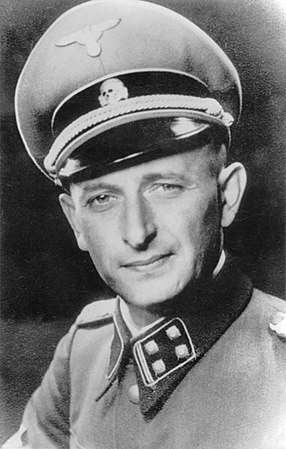
This is Adolf Eichmann, the empty man, timeline:
1906: He was born.
1914: The First World War began
1914: He and his family move to Linz, Austria.
1916: His mother died.
1918: The First World War ended
1925: He works in the sales division of the Upper Austrian Electrical Construction Company.
1927: He started working as a traveling salesman for the Vacuum Oil Company in Upper Austria. He left his job in 1933
1932: He enters the Austrian National Socialist (Nazi) Party and the SS at the suggestion of an acquaintance, Ernst Kaltenbrunner.
1933: Adolf Hitler is appointed Chancellor of Germany
1933: The Austrian government suppresses the Austrian Nazi Party
1933: He leaves Austria for Germany, where he joins the “Austrian Legion” and engages in military training.
1934: He joins the Security Service Main Office (Sicherheitsdienst (SD) Hauptamt) with the rank of SS-Scharführer (Sergeant).
1935: He married Veronika (Vera) Liebl.
1936: His first son, Klaus Eichmann, was born.
1937: He is assigned to a section of the SD dealing with Zionist activities.
1937: He negotiates with Zionist functionaries and makes an inspection tour of Palestine in order to assess the possibility of large-scale voluntary Jewish emigration to Palestine.
1938: The Central Office for Jewish Emigration officially opens in Vienna.
1939: He becomes responsible for promoting the expulsion of Czech Jews from the Protectorate of Bohemia and Moravia
1939: The Second World War began.
1939: He creates a Central Office for Jewish Emigration in Prague.
1939: He leads the Reich-wide Reich Central Office for Jewish Emigration in Berlin
1940: He becomes director of Reich Security Main Office (RSHA) section IV D 4 “Emigration and Evacuation”
1940: His second son, Horst Adolf Eichmann, was born.
1940: He organizes the deportation of nearly 7,000 Jews from Baden and Saarpfalz to areas of unoccupied France.
1941: He becomes director of RSHA section IV B 4 (Jewish Affairs, or Judenreferat).
1941: He is appointed SS-Obersturmbannführer (Lieutenant Colonel)
1941: He takes part in discussions in which Nazi leaders plan the annihilation of the European Jews.
1941-1942: Eichmann's Section IV B 4 coordinates the deportation of tens of thousands of Jews from the so-called Greater German Reich to ghettos and killing sites in the German-occupied Soviet Union.
1942: Reinhard Heydrich convenes the Wannsee Conference
1942: His third son, Dieter Helmut Eichmann, was born.
1942-1943: He and his aides organize the deportation of Jews from the so-called Greater German Reich, Slovakia, the Netherlands, France, Belgium, and Croatia to killing centers in German-occupied Poland, primarily Auschwitz-Birkenau.
1943-1944: He nd his aides organize the deportation of Jews from Greece, northern Italy, and Hungary, primarily to the killing center Auschwitz-Birkenau.
1944: He personally direct the deportation of Hungarian Jewry.
1945: Hitler commits suicide.
1945: The Second World War ended
1946: He escapes from US custody and flees to Argentina with the assistance of some Vatican officials.
1955: His fourth son, Ricardo Francisco Eichmann, was born.
1960: Agents of the Mossad abduct Eichmann from Argentina and bring him to Israel to stand trial.
1961: He is found guilty of crimes against the Jewish people.
1962: He died.
Sources:
Military Wiki: Adolf Eichmann
Wikipedia: Adolf Eichmann
Holocaust Encyclopedia: Adolf Eichmann
I DON'T SUPPORT NAZISM,FASCISM OR ZIONISM IN ANY WAY, THIS IS AN EDUCATIONAL POST
23 notes
·
View notes
Text
Doing research on WW2 such as the geo-political climate (which was never Really mentioned in my American public school), keeping a copy of the mandate for Leadership on my phone, staying updated on current events, and my very autistic knack for pattern recognition has me fight or flight.
I don't know what WW3 is gonna look like, it may very be another cold war. But it's here.
When we look back on this, we won't say that it started when the US finally took up arms. The war started way before the US was willing to admit there was even a problem.
It will be like WW2, where the US let as many ppl die as the world would allow before they and the other allied forces stepped in.
And just like back then people are asking "why won't the USA or France or the UK do something? Why are they letting it go on so long?"
And the answer is the same as it was back in WW2.
The allied forces themselves were was antisemitic, greedy, and politically driven.
Oh yeah and if you look real close and squint you can also see an oil grab in Iran that happened during ww2. You know "to stop the axis powers" from having oil 🙄
So why would they get involved if they didn't have to?
Remember how they ONLY involved themselves because Poland, an ally to UK and France was invaded?
What are the chances of Netanyahu attacking a US ally, you think?
In fact..I don't remember learning almost a damn thing about the middle east during ww2? But I'd be willing to bet my life its not so different from now. You know. Some non-arab nation doing something shitty but for some fucking reason Arab and Muslim nations are punished?
So lemme just head onto google real quick.
Huh. Would you look at that.
"The Anglo-Soviet invasion of Iran or Anglo-Soviet invasion of Persia was the joint invasion of the neutral Imperial State of Iran by the United Kingdom and the Soviet Union in August 1941. The two powers announced that they would stay until six months after the end of the war with their enemy Nazi Germany (World War II), which turned out to be 2 March 1946. On that date the British began to withdraw, but The Soviet Union delayed until May, citing "threats to Soviet security"
The invasion, code name Operation Countenance, was largely unopposed by the numerically and technologically outmatched Iranian forces. The multi-pronged coordinated invasion took place along Iran's borders with the Kingdom of Iraq, Azerbaijan SSR, and Turkmen SSR, with fighting beginning on 25 August and ending on 31 August when the Iranian government formally agreed to surrender, having already agreed to a ceasefire on 30 August."
So this says Iran surrendered in just 5 days and then then they were occupied for almost 6 years...
To keep Hitler from having oil, right? Thing is: Germany got most of its oil from the Baku fields.
In Russia. 🙃
The attack also took place less than two months after Allied victories over pro-Axis forces in neighbouring Iraq and French Syria and Lebanon.
That's an awful lot of fighting in the middle east when Hitler in Germany and Europe was the fucking problem 🙃🙃
The invasion's strategic purpose was to ensure the safety of Allied supply lines to the USSR (see the Persian Corridor), secure Iranian oil fields, limit German influence in Iran and preempt a possible Axis advance from Turkey through Iran toward the Baku oil fields or British India.
They nabbed Iran's oil because they could under the pretense of "well what if the axis powers attack us through Iran?"
Kind of like "well what if the terrorists attack us through the Red Sea?"

47 notes
·
View notes
Text
Chiune Sugihara was assigned as the vice-consul of the Japanese consulate in Kaunas, Lithuania in 1939.
Lithuania was occupied by the Soviet Union in June 1940, and many Jewish refugees from Poland and other countries had gathered in Kaunas, hoping to find a way out of Europe.
They heard that Japan was a possible destination for them, as Japan had not yet joined the Axis powers and had maintained diplomatic relations with some European countries. However, they needed transit visas from the Japanese consulate to cross the Soviet Union and reach Japan.
Hundreds of Jews in desperate need of visas approached Sugihara, imploring him to assist them. Despite his efforts, Sugihara was unsuccessful in obtaining permission from his superiors in Tokyo to issue visas to the refugees. He made three separate requests, but each time his appeal was turned down. The Japanese authorities stipulated that only those individuals who possessed valid passports, adequate funds, and confirmed exit visas from Japan were eligible to receive transit visas.
Sugihara decided to disobey his government, and worked more than 18 hours a day issuing hand-written visas to the Jews.
He continued issuing visas until September 4th 1940 when he had to leave Kaunas with his family due to the closure of the consulate. According to eye witness accounts, he was still busy writing visas and tossing them out of the train as it departed. Overall, his efforts saved the lives of over 6000 people. Despite his heroic actions, his story remained largely unknown until 1985, just a year before his passing.
It is believed that up to 100,000 individuals who are alive today are descendants of people who received visas from Sugihara.
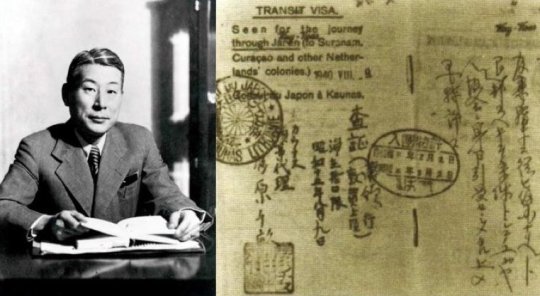
73 notes
·
View notes